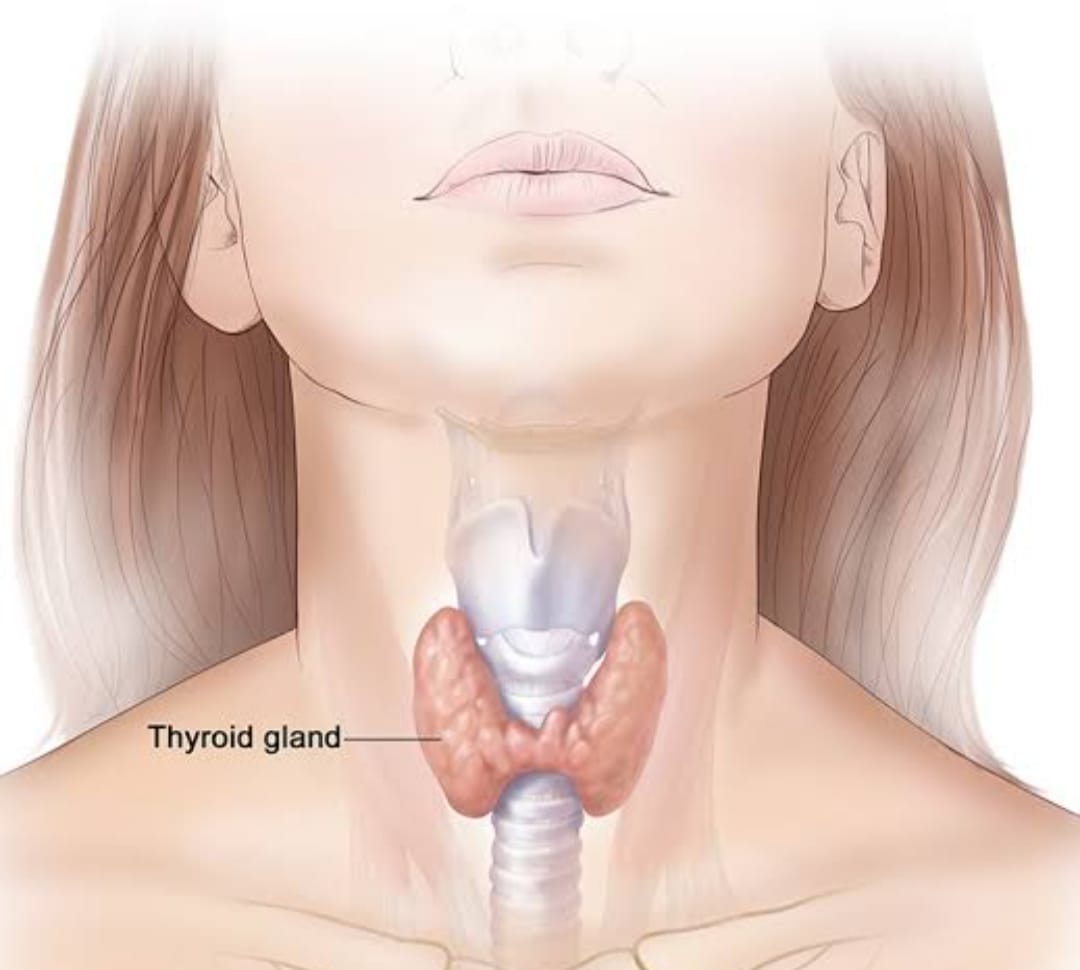Hyperthyroidism: Causes, Symptoms, and Treatment Options

Hyperthyroidism is a condition in which the thyroid gland produce too much thyroid hormone. The condition is often called overactive thyroid.
The thyroid is a small gland located in the neck. The thyroid creates the hormones tetraiodothyronine (T4) and triiodothyronine (T3). Hormones from this gland are important in helping our body manage and utilize energy.
Alternative Names
Thyrotoxicosis; Overactive thyroid; Graves disease – hyperthyroidism; Thyroiditis – hyperthyroidism; Toxic goiter – hyperthyroidism; Thyroid nodules – hyperthyroidism; Thyroid hormone – hyperthyroidism.
Causes of Hyperthyroidism
The thyroid gland is a significant organ of the endocrine system. It is situated at the front of the neck simply above where your collarbones meet. The gland makes the hormones that control the manner every cell in the body utilizes energy. This interaction is called metabolism.
Numerous diseases and conditions can cause hyperthyroidism, including:
- Eating too much of foods that contain iodine (very rare, and only if there is already a problem with the thyroid)
- Graves disease (most common cause of hyperthyroidism)
- Inflammation (thyroiditis) of the thyroid due to viral infections, some medicines, or after pregnancy (common)
- Taking an excess thyroid hormone (common)
- Noncancerous growths of the thyroid gland or pituitary gland (rare)
- Some tumors of the testes or ovaries (rare)
- Getting medical imaging tests with contrast dye that has iodine (rare, and only if there is already a problem with the thyroid)
Symptoms
Normal symptoms include:
- Hand tremor
- Anxiety
- Trouble concentrating
- Fatigue
- Frequent bowel movements
- Goiter (visibly enlarged thyroid gland) or thyroid nodules
- Hair loss
- Heat intolerance
- Increased appetite
- Increased sweating
- Irregular menstrual periods in women
- Nail changes (thickness or flaking)
- Nervousness
- Pounding or racing heart beat (palpitations)
- Restlessness
- Weight loss (or weight gain, in some cases)
- Sleep problems
Different symptoms that can happen with this condition:
- Moist skin
- Diarrhea
- Feeling faint when you lift your hands
- High blood pressure
- Itchy or irritated eyes
- Itchy skin
- Nausea and vomiting
- Breast development in men
- Protruding eyes (exophthalmos)
- Skin blushing or flushing
- Skin rash on the shins
- Weakness of the hips and shoulders
When to see a doctor
If you lose weight without trying, or if you notice a quick heartbeat, strange sweating, swelling at the base of your neck or other symptoms of hyperthyroidism, make an appointment with your doctor. Ask your doctor about all the symptoms you’ve noticed whether they are minor.
After a determination of hyperthyroidism, most people need regular follow-up visits with their doctor to see the condition.
Normal reference ranges:
- T3: 100 to 200 nanograms per deciliter (ng/dL) or 1.54 to 3.08 nanomoles per liter (nmol/L)
- T4: 4.5 to 11.2 micrograms per deciliter (µg/dL) or 58 to 144 nanomoles per liter (nmol/L)
- TSH: 0.4 to 4.0 milli-international units per liter (mIU/L)
Typical levels in Hyperthyroidism:
- T3: Above the upper limit of the normal range, often exceeding 200 ng/dL or 3.08 nmol/L
- T4: Above the upper limit of the normal range, often exceeding 11.2 µg/dL or 144 nmol/L
- TSH: Below the lower limit of the normal range, often less than 0.4 mIU/L
Diagnosis
The doctor will do a physical test and may find the symptoms mentioned above.
- Blood tests are also ordered to measure your thyroid hormones TSH, T3, and T4.
- You may also have blood tests to check:
- Cholesterol levels
Glucose
Specialized thyroid tests like Thyroid receptor antibody (TRAb) or Thyroid Stimulating Immunoglobulin (TSI)
Imaging tests of the thyroid may also be needed, including: - Radioactive iodine uptake and scan
Thyroid ultrasound (rarely)
Treatment
- Antithyroid medicines (propylthiouracil or methimazole) which diminish or block the effects of the extra thyroid hormone
- Radioactive iodine to destroy the thyroid gland and stop the excess production of hormones
- Surgery to remove the thyroid
- If your thyroid is removed with surgery or destroyed with radioactive iodine, you must take thyroid hormone replacement pills for the rest of your life.
- Medicines called beta-blockers may be prescribed to treat symptoms such as fast heart rate, tremor, sweating, and anxiety until the hyperthyroidism can be controlled.
Prognosis
- Hyperthyroidism is treatable. Certain purposes might disappear without treatment.
- Hyperthyroidism caused by Graves disease usually gets worse over time. It has many complications, some of which are severe and influence personal satisfaction.
What to eat?
Green leafy vegetables, legumes, fresh fruits, non-iodized salt, grains, pulses, lentils, gram, peanuts, cashews, almonds, pumpkin seeds, chicken, meat, egg whites, bamboo shoots, broccoli, spinach, cauliflower, okra, You can include turmeric, pepper, green chillies, mustard, potato, honey in your diet.
What food to avoid?
Eating iodine rich foods should be stayed away from hyperthyroidism. Try not to involve iodized salt in the diet. Likewise avoid taking iodine supplements. Stay away salted fish, shrimp, prawns, milk and milk products, egg yolk, soy products. Aside from this, reduce the amount of caffeinated products i.e. tea, coffee, soda chocolate. This causes more chest pain. Apart from this, cigarettes, tobacco and alcohol should be avoided.
You may also interested in:
Beetroot A Hidden Gem of Health Benefits You Shouldn’t Ignore
